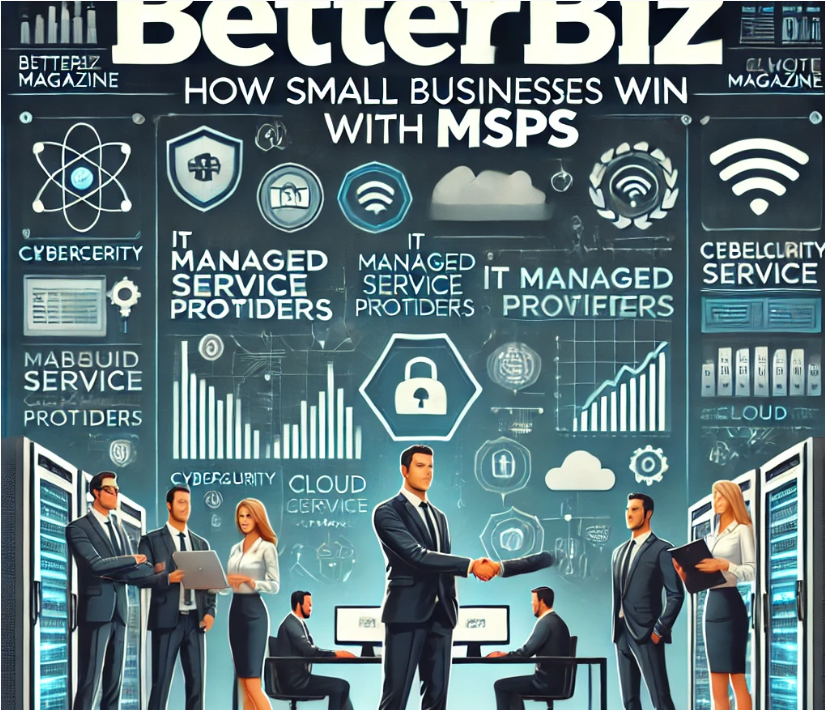Sponsored by Netconnectnyc.com. For more information on managed IT services, contact us at [email protected] or visit https://netconnectnyc.com
In today’s digital age, small businesses face the Herculean task of managing complex IT systems while keeping costs in check. Enter Managed Service Providers (MSPs)—the unsung heroes offering a lifeline to businesses navigating the tech labyrinth. But how do MSPs stack up against hiring a full-time IT professional? Let’s embark on this exploratory journey.
The Cost Conundrum: MSP vs. Full-Time IT Staff
Imagine hiring a full-time IT maestro. Beyond the base salary, consider the ensemble of expenses: benefits, training, and the occasional coffee runs. According to industry insights, the average salary for an IT manager exceeds $120,000 annually in major markets and over $70,000 annually nationally. Factor in additional costs, and your budget might start to resemble a deflated balloon.
Conversely, MSPs operate on a subscription model, offering a symphony of services at a fraction of the cost. They spread their expertise across multiple clients, ensuring you pay only for the services you need, sans the overhead of a full-time hire. It’s like enjoying a gourmet meal without the hefty bill.
The Ensemble Effect: Diverse Expertise at Your Fingertips
A solo IT professional, no matter how skilled, has limitations—after all, even superheroes have their kryptonite. MSPs, however, bring a diverse team of specialists, each a virtuoso in their domain. This collective expertise ensures that whether it’s cybersecurity, network optimization, or software updates, you’re covered. As highlighted by industry experts, MSPs employ specialized IT professionals with diverse skills and certifications, allowing businesses to leverage their expertise without additional hiring and training costs.
When to Cue the IT Support: Employee Thresholds
Determining the right time to introduce IT support is akin to deciding when to add a drummer to your band—it depends on the complexity and volume of your operations. While there’s no one-size-fits-all answer, a common guideline suggests one full-time IT expert for every 100 employees. However, for small businesses, partnering with an MSP can provide scalable support tailored to your specific needs, ensuring that even with a lean team, your IT infrastructure remains robust.
Remote Workforce: Out of Sight but Not Out of Mind
With the rise of remote work, one might ponder: “Do I need IT support if my team is scattered across coffee shops and living rooms?” The answer is a resounding yes. Remote setups introduce unique challenges, from securing diverse networks to managing various devices. MSPs offer 24/7 monitoring, rapid response times, and proactive maintenance, ensuring that your remote operations run smoother than a jazz saxophonist’s solo.
Conclusion
In the grand orchestration of small business operations, MSPs play a pivotal role, harmonizing cost-effectiveness with a rich medley of expertise. Whether you’re a budding startup or an established enterprise, integrating an MSP into your ensemble can elevate your IT performance, allowing you to focus on your magnum opus—growing your business.
FAQs
-
What exactly is a Managed Service Provider (MSP)? An MSP is a third-party company that remotely manages a business’s IT infrastructure and end-user systems, typically on a subscription basis.
-
Can an MSP replace an in-house IT team entirely? Depending on your business needs, an MSP can either complement your existing IT team or serve as a full-fledged IT department.
-
Are MSP services customizable? Absolutely. MSPs offer scalable solutions tailored to the specific requirements and budget constraints of your business.
-
How do MSPs ensure data security, especially with remote teams? MSPs implement robust security protocols, continuous monitoring, and regular updates to safeguard data across all devices and networks.
-
Is transitioning to an MSP disruptive to current operations? A reputable MSP will ensure a seamless transition with minimal disruption, often enha


